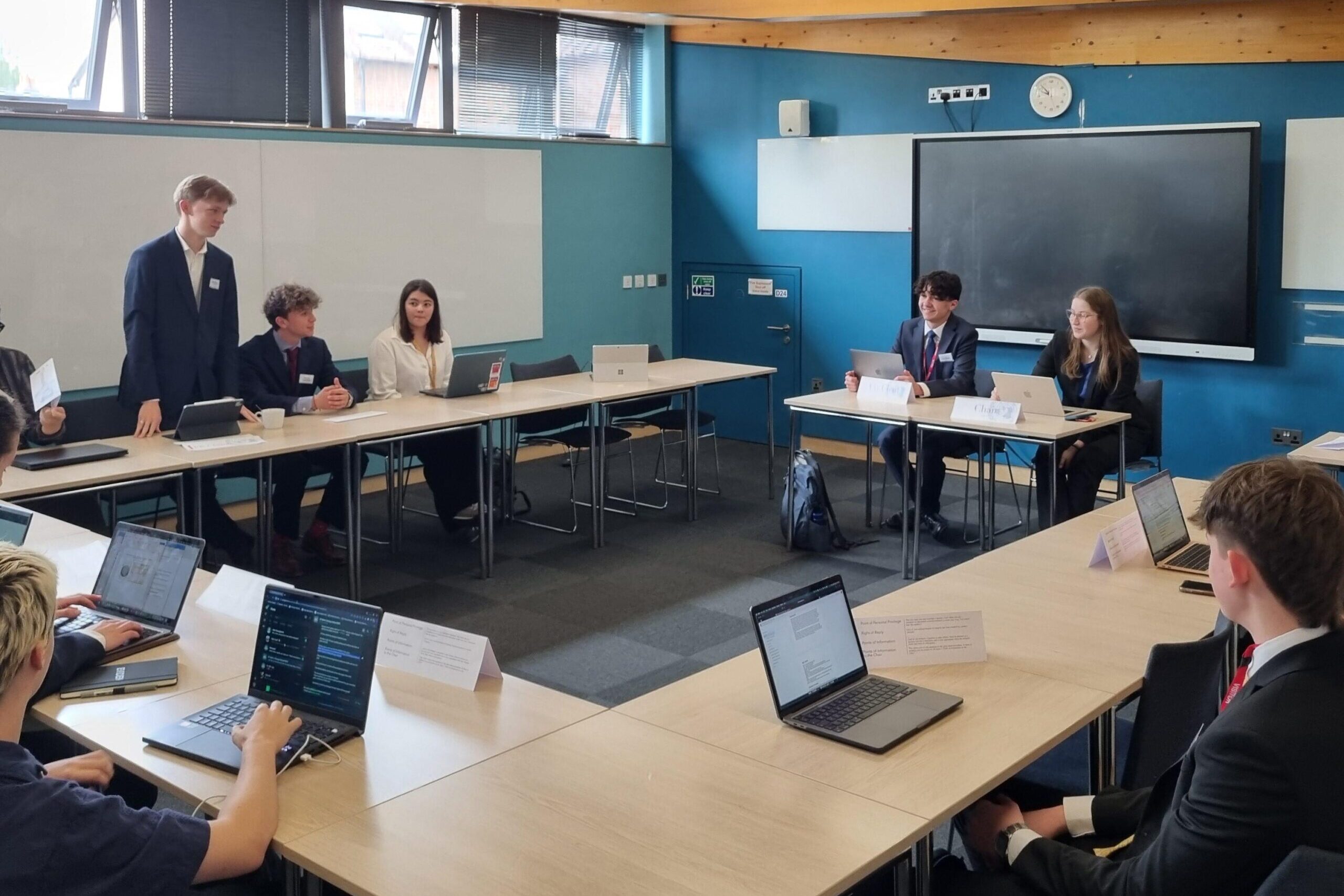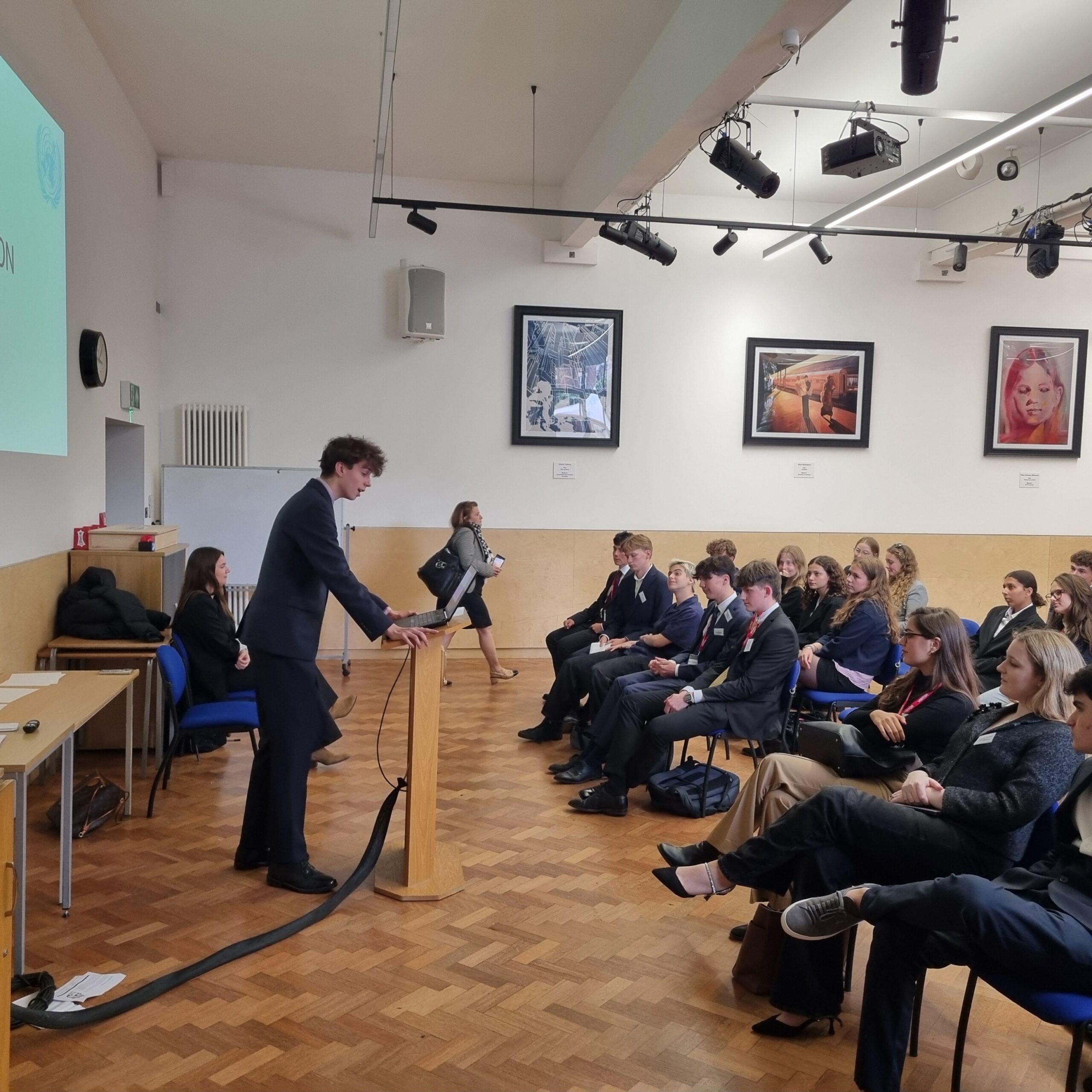I recently had the privilege of participating in the Bilateral Model United Nations Conference hosted by St. Clare’s Oxford in collaboration with the Europa School.
It was a dynamic and enriching experience that deepened my understanding of international diplomacy and sharpened key skills such as public speaking, negotiation, and critical thinking.
The day began promptly at 9:30 AM with an introduction from the event organisers, Kai and Matilde, who welcomed all delegates and set the tone for the day ahead. We also heard a thought-provoking keynote speech from the American delegate of Europa School on the importance of diplomacy in today’s world. Our supervisors, Andrew Young and James Jacob, then introduced themselves and highlighted the key lessons we should aim to take from the day.
At 10 AM, we split into our respective committees: ECOSOC, Human Rights, and the Security Council. I was part of the Human Rights Committee, representing the United States in discussions on human rights violations in occupied territories. We began by delivering opening statements on behalf of our countries, followed by rounds of critique and debate. This was one of the most intellectually stimulating parts of the day—challenging each other’s positions, questioning ambiguous phrasing, and demanding evidence of real-world policy responses. The debate was intense yet fulfilling, pushing us to think on our feet and engage in thoughtful, strategic dialogue.

By 1 PM, we paused for a lunch break—a welcome opportunity to connect with students from Europa not just as fellow delegates, but as IB peers. We exchanged insights about how MUN is organised at our respective schools and bonded over our shared experiences in the diploma programme.
After lunch, we began drafting resolutions—only to be surprised by a simulated crisis that required an urgent and collaborative response. Crisis sessions are always exciting, as they test our ability to apply diplomacy and teamwork under pressure. It was a challenging yet rewarding exercise in adaptability and quick decision-making.
By the end of the day, we had not only passed comprehensive resolutions on our original topics but also addressed the unexpected crises with creativity and collaboration. The closing ceremony followed, featuring reflective speeches from our supervisors and organisers, who praised the dedication and skill displayed throughout the day. Awards were presented to the best delegates, honourable mentions, and the chairs and co-chairs who helped guide each committee.

This unique experience offered an incredible opportunity to step into the role of a delegate representing a nation, and to engage in dynamic, structured debates on some of the most pressing global issues. It was a challenging yet rewarding process that pushed me to think critically, speak persuasively, and negotiate effectively—all while remaining grounded in the policies and interests of the country I was assigned to represent.
Through this conference, I significantly enhanced my public speaking and debating skills, deepened my understanding of international relations, and further developed my ability to collaborate under pressure. One of the most valuable lessons was learning to see issues from diverse perspectives—both in terms of geopolitical context and cultural understanding—while still maintaining the viewpoint of my assigned country. This balance between empathy and strategic thinking was both intellectually stimulating and personally enriching.
I’m grateful for the chance to connect with peers who are equally passionate about diplomacy, politics, and global cooperation. Experiences like this reaffirm my interest in international affairs and inspire me to continue building the skills necessary to contribute meaningfully to global dialogue.
Written by Wissal – IB26 student
